Like a lot of people, I have been listening to Taylor Swift’s latest album, Midnights, since it came out a couple of months ago. I’m a recent convert to being a proper fan of hers, after being really impressed by her last few albums - seeing how she has matured as an artist, and the emotional tone of her recent work, has made me appreciate her much more.
Midnights is an exciting new chapter in Swift’s career, and the album is notably much darker in tone than the cottagecore-folk stylings of folklore and evermore. The album has more of a nightclub backroom feel, with moody synths and electronic beats characterising much of its sound. The album also marks a return to directly autobiographical writing, after her forays into fiction on the preceding two albums.
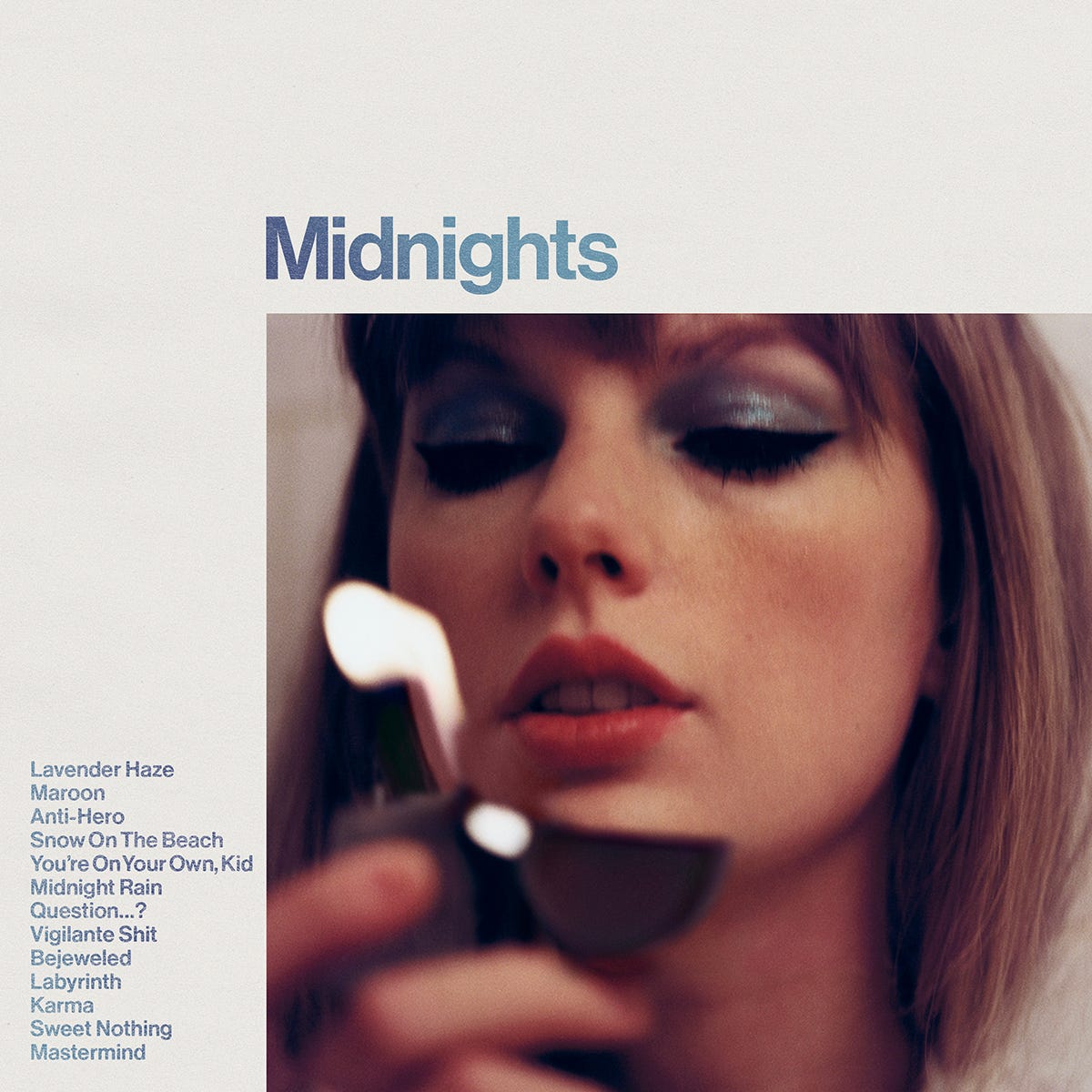
Midnights is inspired by insomnia - Swift describes the tracks as “the stories of 13 sleepless nights scattered throughout [her] life,” and the songs tend to touch on suitably dark subject matter such as self-loathing, revenge, and lovesickness. The title alone hints at some kind of exploration of shadow, as midnight is the darkest time in the 24-hour day, the middle of the night, which Taylor describes as the time when we hope “we’ll meet ourselves.”
But delving deeper into the songs themselves reveals Swift going through her past experiences, combing through the mistakes she has made and the inner turmoil she has faced, not through rose-tinted glasses but quite the opposite - she amplifies the dark elements of these experiences, and rarely comes out the hero.
The lead single, aptly titled “Anti-Hero,” sums up this sentiment - in the song, Swift lists all the things she hates about herself: she “get[s] older but just never wiser,” she disguises her “covert narcissism” as “altruism.” In the music video, we rather literally see Taylor’s shadow self as her double - the fun-loving party girl who plants nefarious ideas in her head.
In the chorus of the song, she declares, “I’m the problem, it’s me,” only half-joking. It’s funny and self-deprecating, but she is getting at an important thing here: sometimes we are the problem. A playful bit of self-effacing humour becomes a profound taking responsibility for her faults. Why I think this, I’ll come back to later.
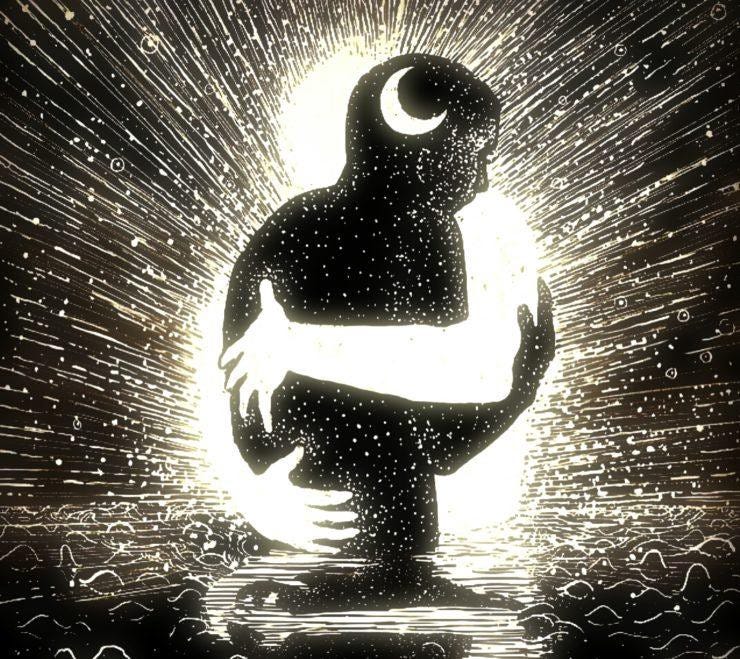
In psychological terms, the shadow refers to the dark side of our characters, where all the parts of the psyche which we deem shameful or unattractive get pushed out of our ego-awareness and into the unconscious. Shadow work is about making the contents of the shadow conscious, reversing the repression process, to gain deeper insight into our behaviour, usually because it is having a negative impact on our lives. People engage in shadow work to identify patterns of behaviour in an attempt to heal core wounds and reach a deeper sense of self.
Swift’s shadow looms large over much of Midnights. In “Maroon,” she is the infidel rather than the wounded lover she has so often been. In “Midnight Rain,” she breaks off a relationship with a guy who is too nice for her, saying “he wanted it comfortable” while she “wanted that pain,” “Vigilante Shit” is a full-blown evil revenge fantasy, and in closing track “Mastermind” she calculatedly pursues a lover, describing herself as “cryptic and Machiavellian.” These songs are all explorations of her darker side, the capacity which we all have to be manipulative and duplicitous.
At the same time, these songs are all nuanced and hint at why the protagonists of each song behave in the way they do, and it usually comes back to the struggle for success women face in patriarchal society. Take this section from “Mastermind:”
“all the wisest women / had to do it this way / ‘cause we were born to be the pawn / in every lover’s game.”
Swift is reacting against the expectation for women to be passive and willing to be manipulated by flipping the situation entirely - she is the pursuer, the schemer, and she plots things out to get what she wants. In order to make it in the music business, Taylor had to have been pretty enterprising as a young person, and the dark side of that determined, capitalist attitude becomes a persona on Midnights.
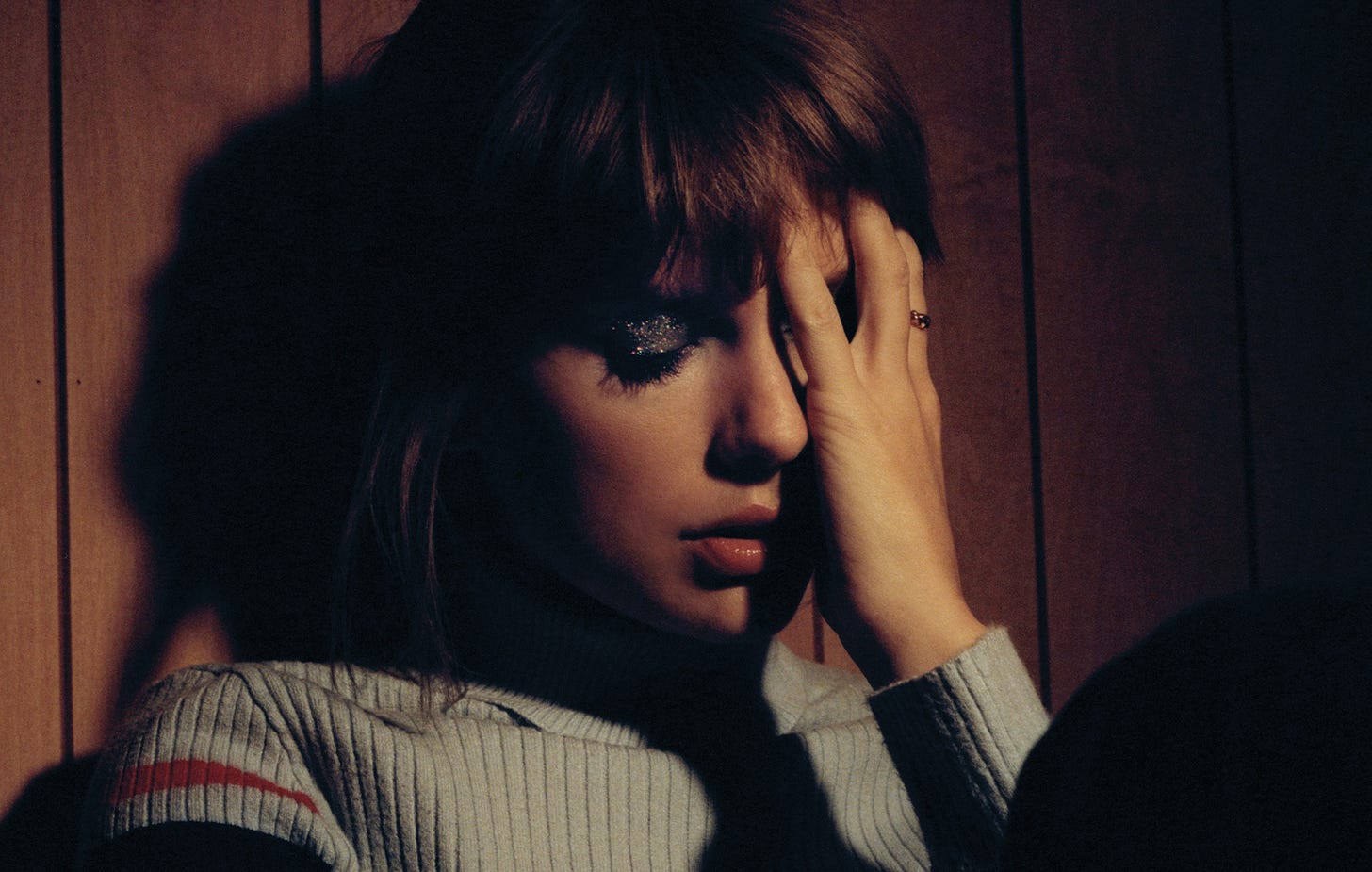
The outtakes from the Midnights sessions, included on the ‘3am Edition’ version of the album as bonus tracks, reveal more insights. “Would’ve, Could’ve, Should’ve” recounts a traumatic experience Swift had as a young woman through the lens of religious guilt, and she ruminates over her loss of innocence and her regret, pleading for her girlhood to be given back. “Bigger Than the Whole Sky” hints at a deep personal loss; the song has been interpreted by fans as alluding to a miscarriage.
“The Great War” details a period of conflict in a relationship - most likely Swift’s long-term relationship with her partner - using the extended metaphor of a brutal and pointless war. In an interesting twist, Taylor paints herself as the aggressor in this situation, going on the attack and rebuffing all attempts to resolve the conflict: “You drew up some good faith treaties / I drew curtains closed, drank my poison all alone.” She eventually rescinds the attack, but only after nearly losing her partner. The song ends solemnly, but with hope that the relationship is now stronger after surviving the conflict.
Taking all of this into account, the story which emerges for me (and this is pure speculation) is that a period of struggle in Swift’s personal life forced her to confront herself in a new way, admit her darker impulses and sort through past experiences where there was unfinished business. This is essentially what shadow work is.
And returning to my earlier point about taking responsibility, Taylor is often brutally honest about her own faults, and it is only through admitting your faults that you can take responsibility for them, begin to work through them, and become wiser and hopefully kinder. Confronting the shadow is challenging work, but it is satisfying once you begin to be able to get a hold on that part of your psyche. In a kind of twisted way, admitting the ways that you are immature enables you to mature.
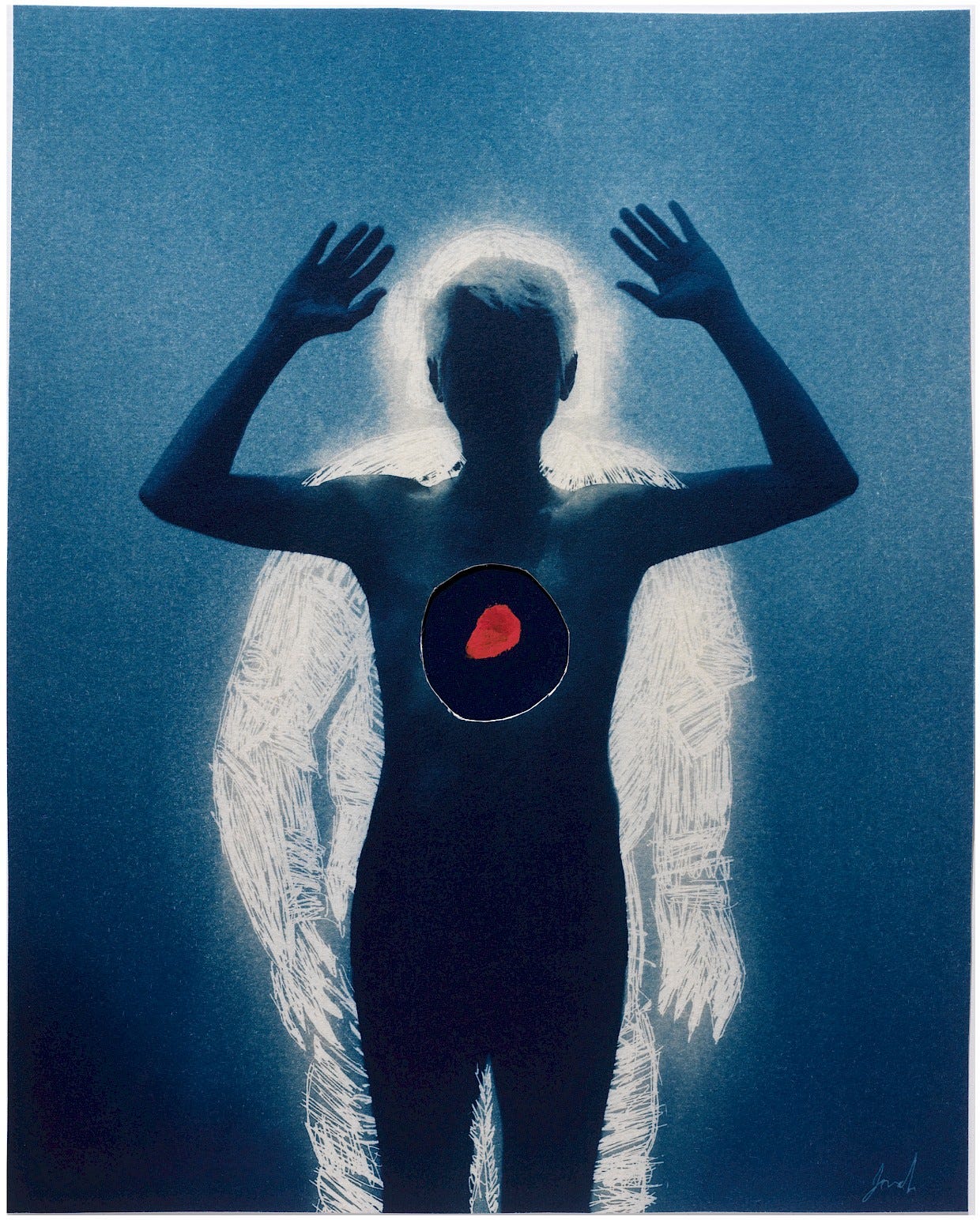
Carl Jung, who pioneered this psychoanalytical concept of the shadow, has a brilliant quote, which goes: “Everyone carries a shadow, and the less embodied it is in the individual’s conscious life, the blacker and denser it is.”1 This is crucial when discussing shadow work - the reason why becoming conscious of the shadow is helpful is that remaining unconscious of it only gives it more power to wreak havoc on the conscious mind. It’s about bringing the shadow into conversation with the ego, giving it a say but not letting it overpower our sense of reason; it's about finding a balance.
Songwriting is a brilliant way of working with the shadow in a way that is contained, while still offering full expression of it and diverting it away from doing damage to one’s personal life. Swift isn’t the only person who is doing this - Florence + The Machine’s most recent album Dance Fever utilises the same device of using shadow to confront oneself internally, and other songwriters such as Laura Marling have done similar things. (Curiously, it mostly seems to be women who do this.)
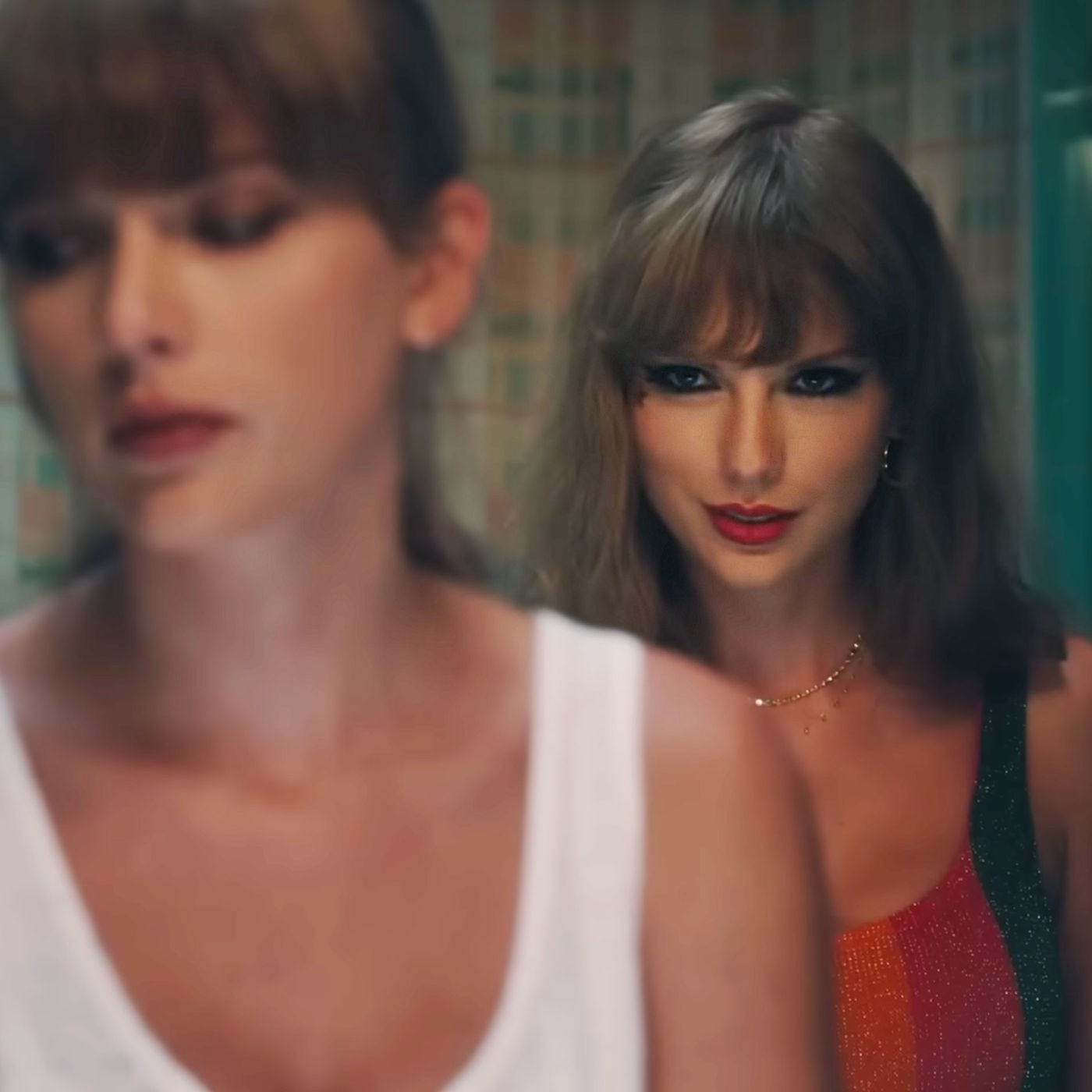
The joyful paradox in this kind of work is that writing songs about the darkest subject matter can be completely joyful and enlivening, and Taylor has attested to this:
“[Midnights] is a pretty dark album, but I’d say I had more fun making it than any album I’ve ever made… writing things feels like a way to sort of suck the poison out of a snakebite […] it could be the most harrowing song you have ever heard, but we had a blast making it.”
What she’s getting at here is the joy of creativity: the act of making something imparts meaning, gives life to something, and then allows distance once it is over. The dark moments and the shame, the fears and the grief, then become fuel for a process which is fulfilling and life-affirming. Giving the inner darkness voice in a song brings catharsis and also sucks the poison out of it.
Joyful creativity seems to be the modus operandi for Swift right now - in the last few years she has been incredibly prolific, producing four new albums, re-recording her earlier material in order to have ownership of the masters, and directing music videos (including a 15-minute short film for the extended version of “All Too Well”). The fans are lapping it up, and Taylor appears to be having a great time doing it - she says: “the more things I make, the happier I am.” Let’s hope she will continue.
Thanks for reading! If you want to read more music criticism, and other stuff such as poetry, please consider subscribing. I post every week, and it would be great to have you along for the ride.
Until next time.
from Psychology and Religion, CW 11, p. 131.



